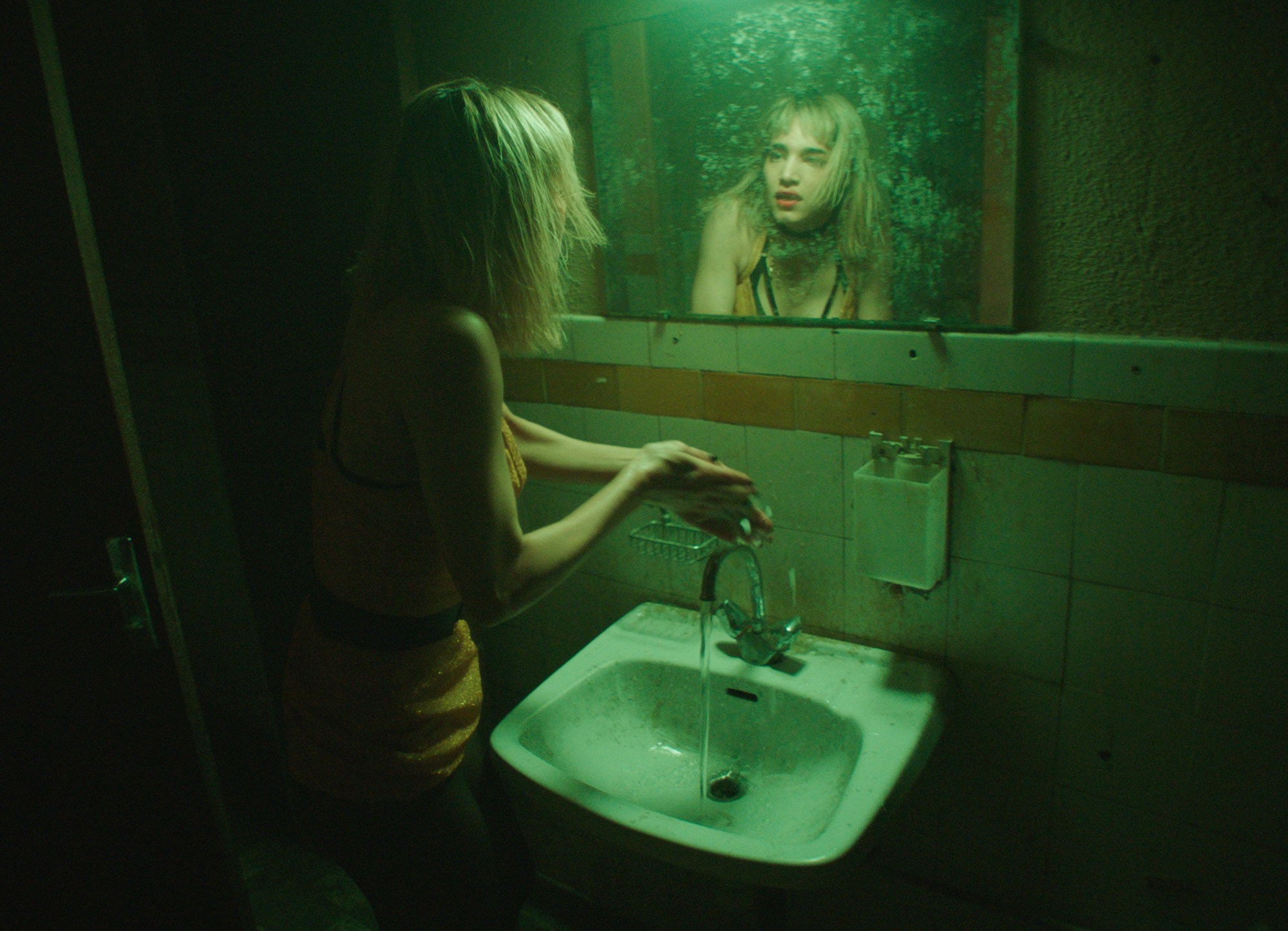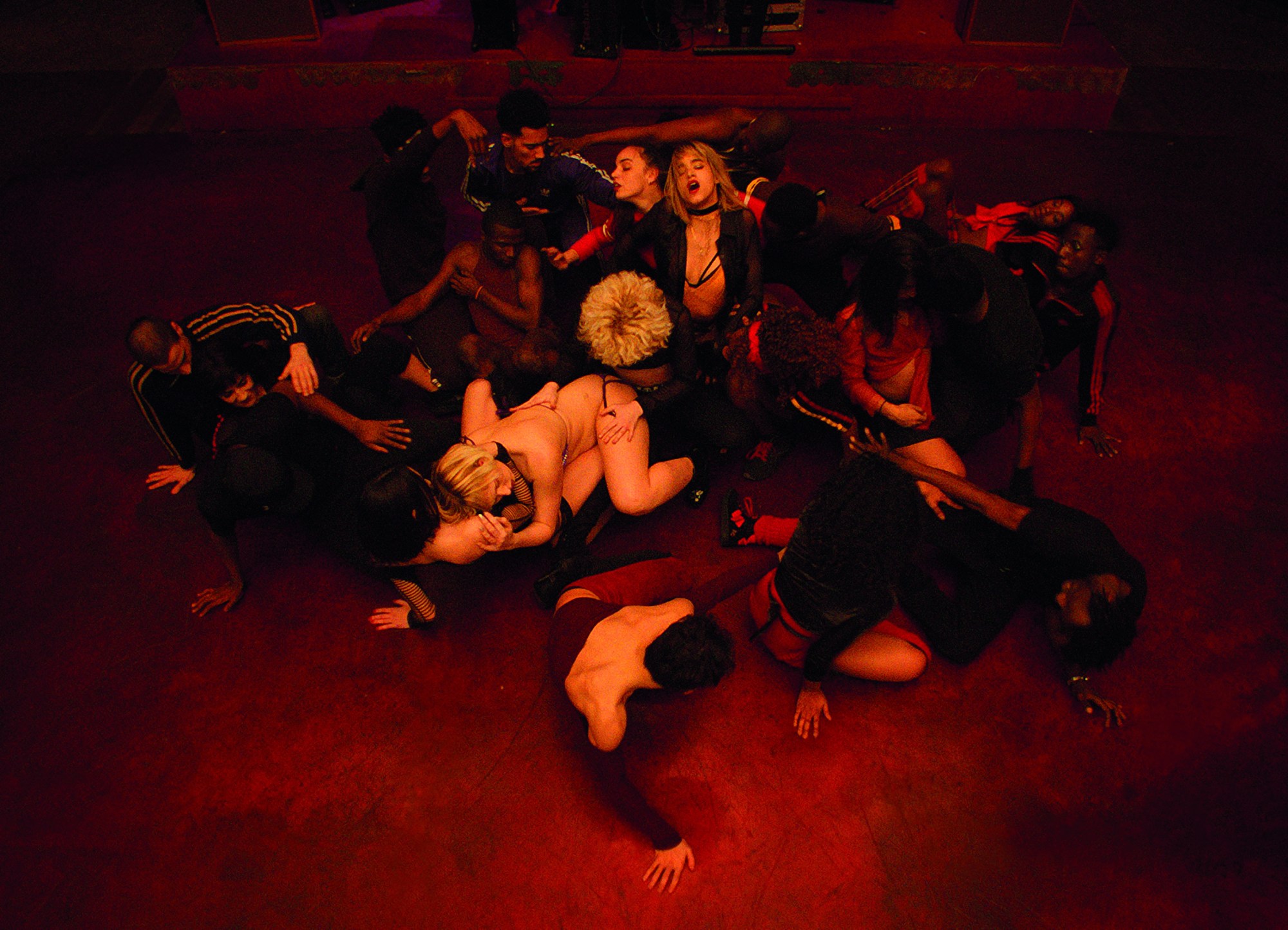i-D is ready to speak to director Gaspar Noé, but his publicist thinks he’s still sleeping. It’s nearly 10am, and the provocative, French-Argentinian movie auteur, famed for films like Irreversible and Enter the Void, hasn’t picked up his phone yet.
It’s not really surprising: last night was the final screening of his latest film, Climax, here at the Cannes Film Festival. Shrouded in mystery when it was first announced — most people hadn’t realised he’d made a new movie at all — crowds rocked up to the festival expecting a follow-up to his sex-fuelled 3D epic Love, which split critics when it bowed here at the festival four years ago. Instead, what we got was a feverish, kinetic dance horror film, about a group of voguers and krumpers rehearsing and partying in a building outside Paris, whose evening turns awry when the sangria bowl gets spiked. Everybody falls into a woozy and horrifying stupor; what follows is more violent and scarring than any of them could have imagined.

Its cast, headed up by the Atomic Blonde star Sofia Boutella, but formed almost entirely of young Parisian dancers from the city’s underground voguing and street dance scene, were asked to keep their lips sealed after Noé wrapped the project. Speculation over how his films will be judged by critics, who’ve had no hesitation both celebrating and tearing his work apart in the past, is fairly common. But can you remember the last time you sat down in a cinema, completely unaware of anything about what you were going to watch? That’s how Climax met its stunned audience.
15 minutes later than scheduled, Gaspar shows up and apologises. Of course, Noé has been out partying all night — it’s his last night here, after all — and he’d just arrived back to his hotel room. Usually it’s better to stay awake, he claims, but he took a 20-minute nap and is still trying to make sense of what’s happening right now. One double espresso later, we’re good to go.

So nobody knew what the hell Climax was about until we actually sat down and watched it. Everybody just assumed it was a sequel of sorts to Love. What we got was a massive curveball.
Because of the title, everyone thought it was going to be more sexually explicit than my last! We tried to hide everything as much as much as possible because I wanted to open the movie here, without anybody knowing anything about it. The problem with making movies and the internet: you know everything about a film before it’s even released.
This film wasn’t even on the periphery of your thoughts nine months ago. How did everything come together?
I went to a voguing ball for the first time in my life at the end of December last year, after being invited by Lea Vlamos, who’s one of the dancers in the film. [I knew] the energy that was coming out of there was the kind I wanted to portray in a movie; it had to be driven by the story, but also the people we were shooting. [At the time], I was totally out of money, so I convinced the co-producer of Love Édouard Weil to help me make it, telling him it would be a documentary-fiction film about dancers. I told him we could do it cheaply, and in 15 days. The film’s choreographer, Nina McNeely, arrived five days before, and we wound up casting 22 dancers a couple of days before the shoot began.
The film takes place in this pre-internet and pre-mobile phone era, which makes the dancer’s situation even more terrifying. Changing that would impact the film’s energy, wouldn’t it?
If the story had taken place nowadays, everybody would be on their cellphones looking for help — there wouldn’t be a movie! When I came to Cannes last year, every film seemed to deal with characters experiencing neurosis from spending so much time on their phones. Me? I grew up in the 70s and 80s, where none of these things existed.
Your films are notoriously divisive, but everyone seemed to be showering Climax in so much praise. Do you care what critics think either way?
I’m happy, but what I like the most is when people find perspectives on your work you hadn’t seen before; a more symbolic vision. I love negative reviews. Honestly, some of my favourite reviews that I’ve ever had were bad ones: when people are crazy and mean, and call my work a ‘piece of shit’! I just read one review written by a writer in France who called Climax unwatchable, and started spitting on my movie. It felt so bitter!
Based on your protagonists, you seem to have a fascination with youth culture. Why is that?
Probably because I hang out a lot with young people, and party with them rather than people my age. Plus, everybody relates to someone who’s young, because we were all young once too! Actually, I wouldn’t mind making a film with a child. Kids are more fragile, so there’s more tension when you see a child in danger.
Your quick filmmaking process seems to have paid off immensely. Do you reckon you’d make a film this way again?
Why not? It was a pleasure. I don’t know if I could achieve it as well as I did here though! Climax was a collective project; the stars were aligned.
Does it feel like a work of fate when you’re watching it?
Yeah, it was kind of incredible that when we started preparing the movie in January, I had to tell people that I’d have it ready for Cannes, otherwise nobody would give me the money to make it. I thought it was impossible — but here we are!
CLIMAX premiered in the Director’s Fortnight at the 71st Cannes Film Festival, and will be released in UK cinemas by Arrow later in the year.
